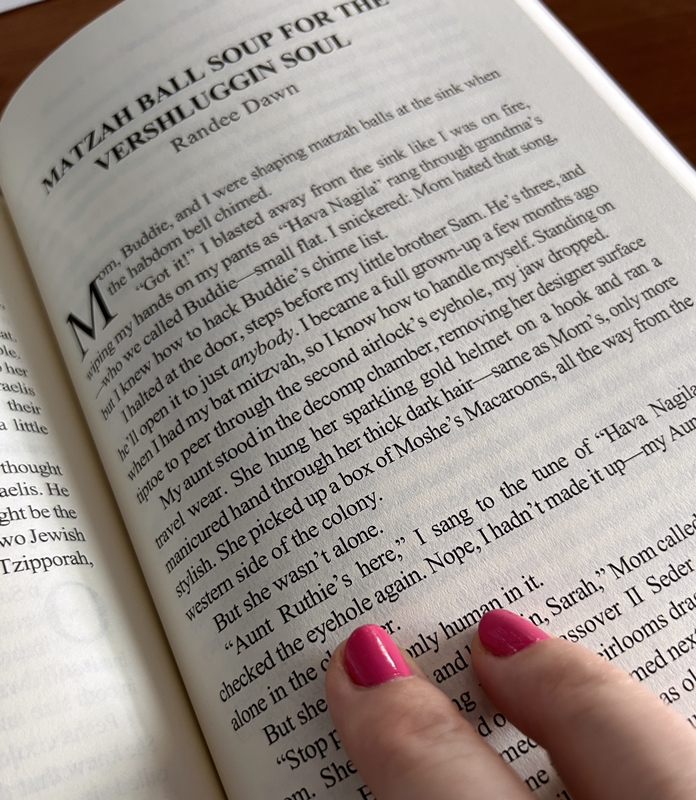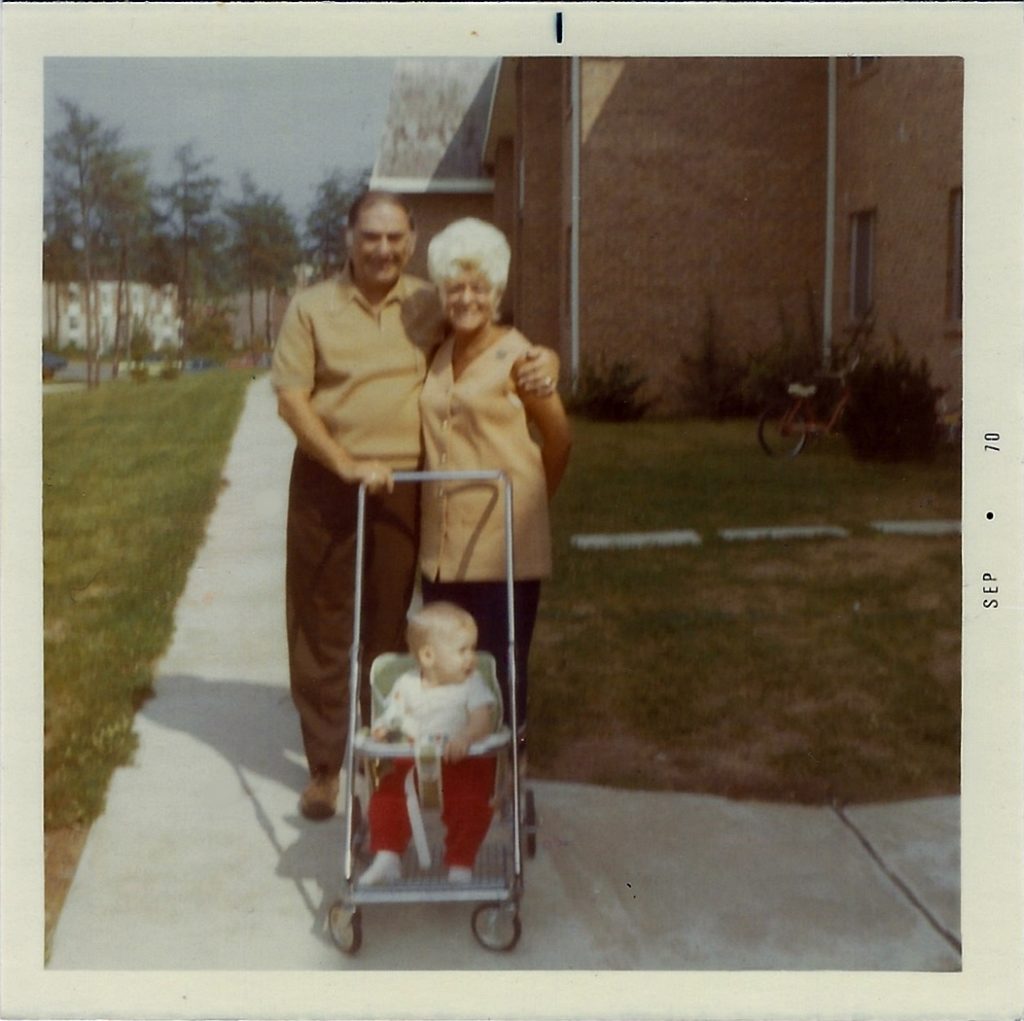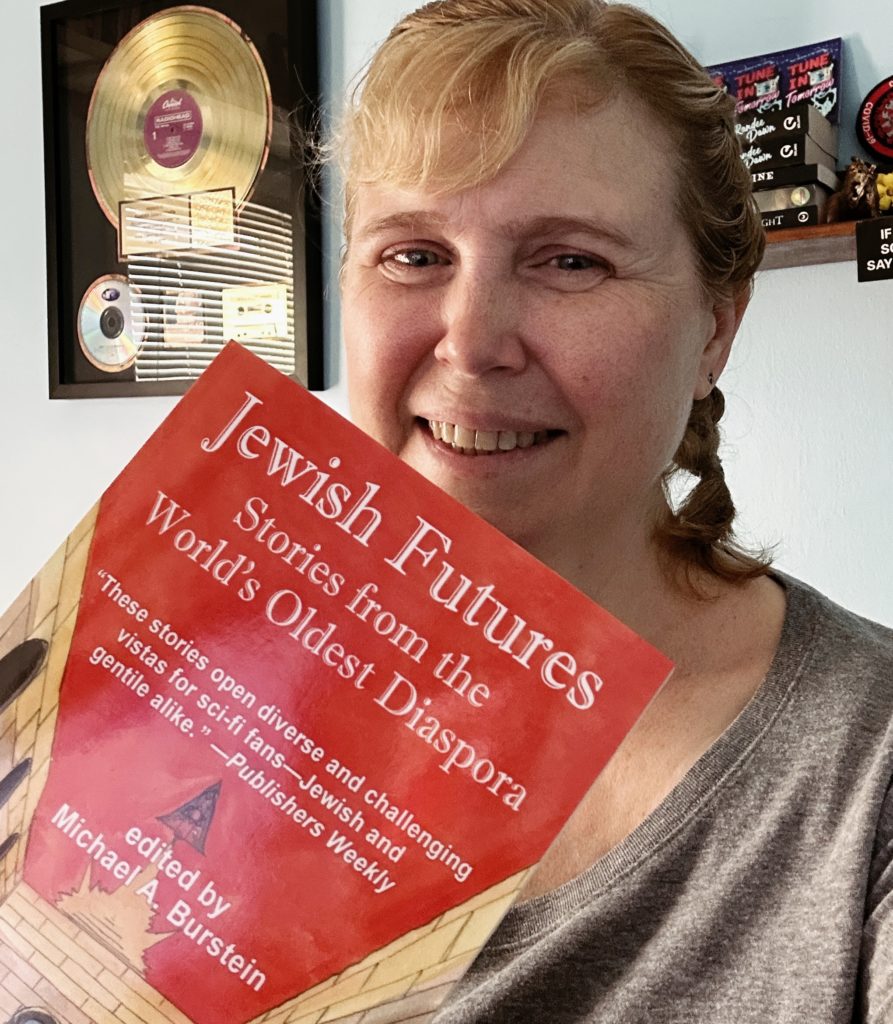8.7.23 Telling past and present with my new ‘Jewish Futures’ story
Writers are magpies. Writers are miners. Writers are fabulists. It’s what we do, it’s how we get stories told: A little from Column A, a little from Column B, often a lot from Column X.
The events I wrote about in my story, “Matzah Ball Soup for the Vershluggin Soul,” featured in the brand-new Jewish Futures: Science Fiction from the World’s Oldest Diaspora (out Aug. 7), didn’t happen. At least, not like I wrote them.
There is no “Vershluggin” alien, there is no alternate planet, there was no Exodus II in which Jews had to flee Earth. (Though, you know, the latter one is the least unlikely plot twist.) But once I had the story I wanted to tell in mind — how would Jews react if an alien wanted to convert? — I also immediately knew where I wanted to place it.
In a Passover Seder I remembered well growing up.
In “Matzah Ball,” you’ll meet a bunch of characters — two of whom are named Buddie, and Pop-Pop. These are my maternal grandparents, and that’s what I called them. These characters are not them — that is, Buddie didn’t get drunky at Seder. But they’re also not not them, too — Pop-Pop did, in fact, rarely speak, likely in the face of decades of Buddie’s garrulousness. (Also, the story of why she was “Buddie” and not “Bubbie” is 100 percent true.) I loved them fiercely and they loved me right back. With rare exceptions, we always had Seder at Buddie and Pop-Pop’s place at the Warwick Apartments in Wheaton, Maryland — an apartment on the 21st floor that always smelled of warmth and comfort and chicken being prepared dozens of ways from the moment we walked out of that elevator and headed down some hideous carpet to No. 2118.
There are other true things in there: Not that the missing father of the children ran off with someone else … but that there was a missing father. My dad often failed to come with us to Seder, and that made pretty much everyone else in the room happy and contented. (Buddie was known to remark that without him there, she could avoid her food settling like a rock in her stomach.) We also loved her overcooked meats, her fat-fried potatoes, and reading from the Haggadah, brought to you by Maxwell House. I never did care for coffee, but I always had a warm spot in my heart for Maxwell House.
Passover really was the best holiday our family celebrated. (Hanukkah might have presents, but Passover was an occasion.) The kids got to participate, and I was allowed to read aloud from the book, which I adored. The food was excellent and I was allowed to taste wine. (Buddie, though not a big drinker, was actually my gateway to tasting various drinks over the years — I always got a sip of her whiskey sour whenever she ordered it at a restaurant.) There was singing (as there is in the story). And while we rarely had non-family members at the table, I always had the sense that outsiders would be welcome.
At least, so long as Buddie didn’t end up with a rock in her stomach later on.
I decided to be a bit more literal with my naming of characters in this story for a couple of reasons. One, I don’t have kids — and this is fine — but the older I get the more I want to preserve bits and pieces of my history not via DNA but in words. I like putting true things into stories where they fit and make sense. Conjuring up Buddie and Pop-Pop’s Seder table on Warwick Avenue gives me an instant sense of taste, smell and memory. It is a whole picture for me, and hopefully it will do something similar for the readers.
Summoning up memory also can conjure things you hadn’t planned on including. Nestling with Buddie on her bed — we had occasional sleep-overs and her Murphy bed in the guest room was wicked uncomfortable — while she held me close was not an intended inclusion, but when I wrote it out it was like I was back in the room with her again. (Note: Our protagonist is not me … but not not me, either.) I could remember sitting on that bed as Buddie talked to me about Pop-Pop’s army portrait while I took in her smells of hairspray and chicken and history. Writing that very brief scene actually brought happy tears to my eyes, because until that moment I’d had it filed away so deep I’d nearly forgotten it.
Jewish Futures is a remarkable book, full of amazing stories by authors far more experienced and talented than I am. But what I imagine is that in writing all of our futuristic tales — always an act of optimism, to envision a future at all — has led authors to open our family histories. Doing that can often pop open a long-ignored drawer in the memory file cabinet, as it did for me.
After all, that’s what we do. Column X is one of our favorite places to visit. Come join us at the table, and pass the Manischewitz. Time to get spicy.
More info on Jewish Futures and links to purchase here.
XO,
Randee



What a lovely remembrance. Can’t wait to read the story! (Fond memories of the Maxwell House Haggadah!)
We are united as a tribe by corporate pamphlets! What could be more American? (And thank you!)
I really like the way you explain the semi-autobiographical nature of this story as not only explaining things to readers but giving new life to memories for yourself <3
Aww, thanks!!